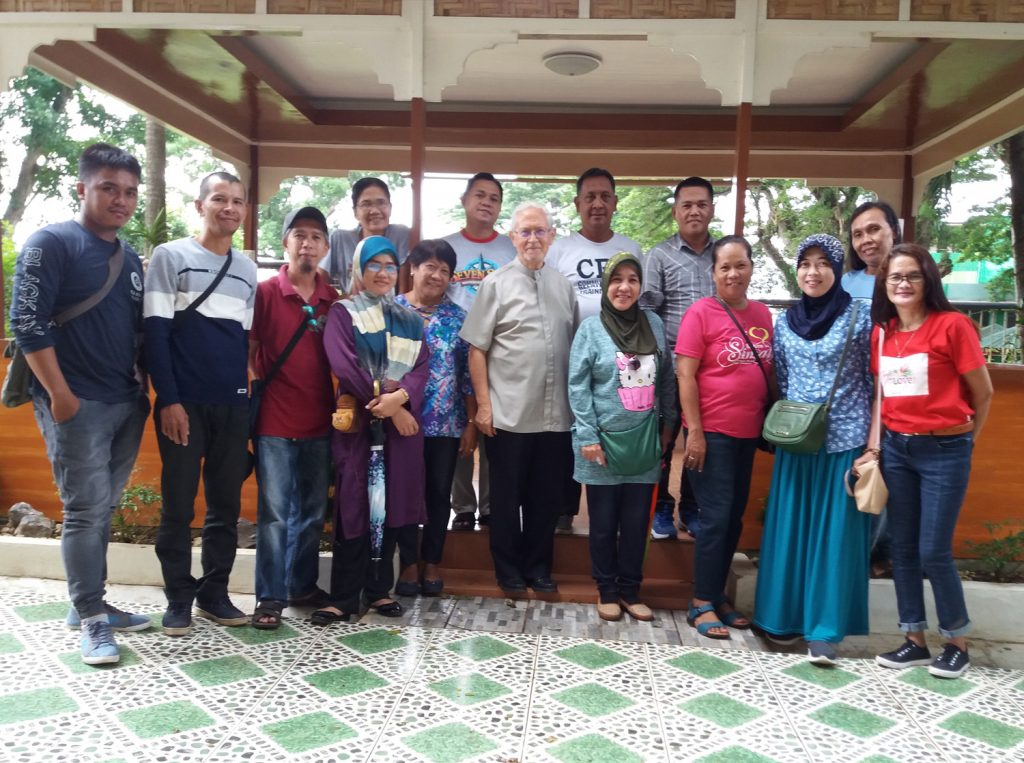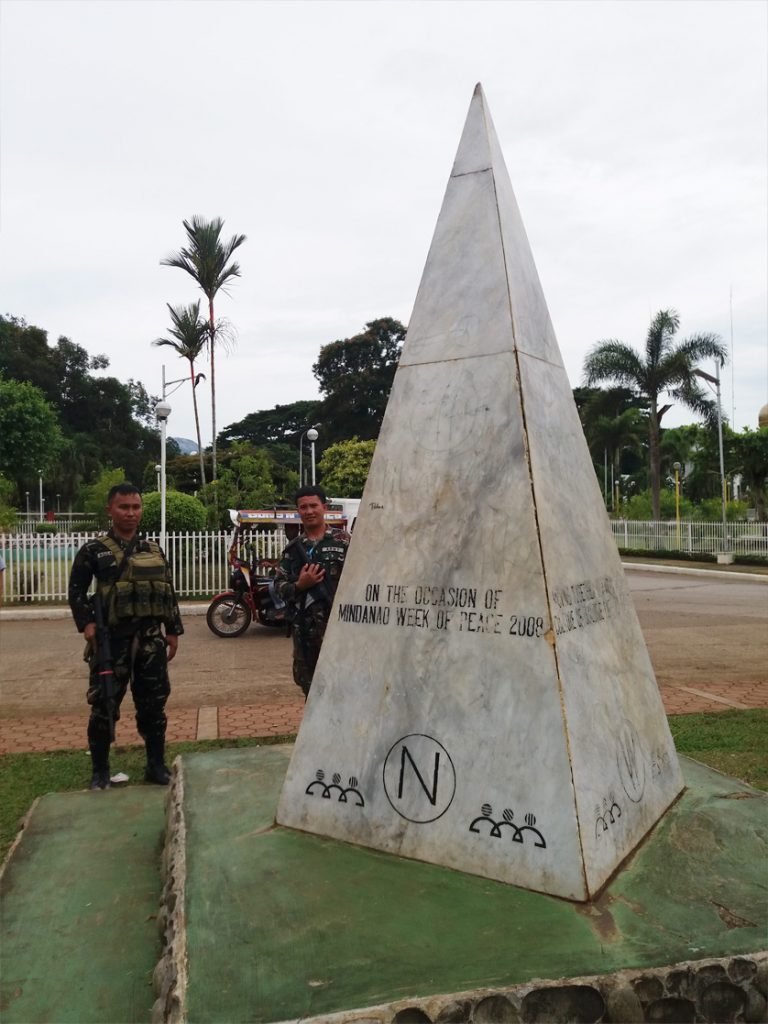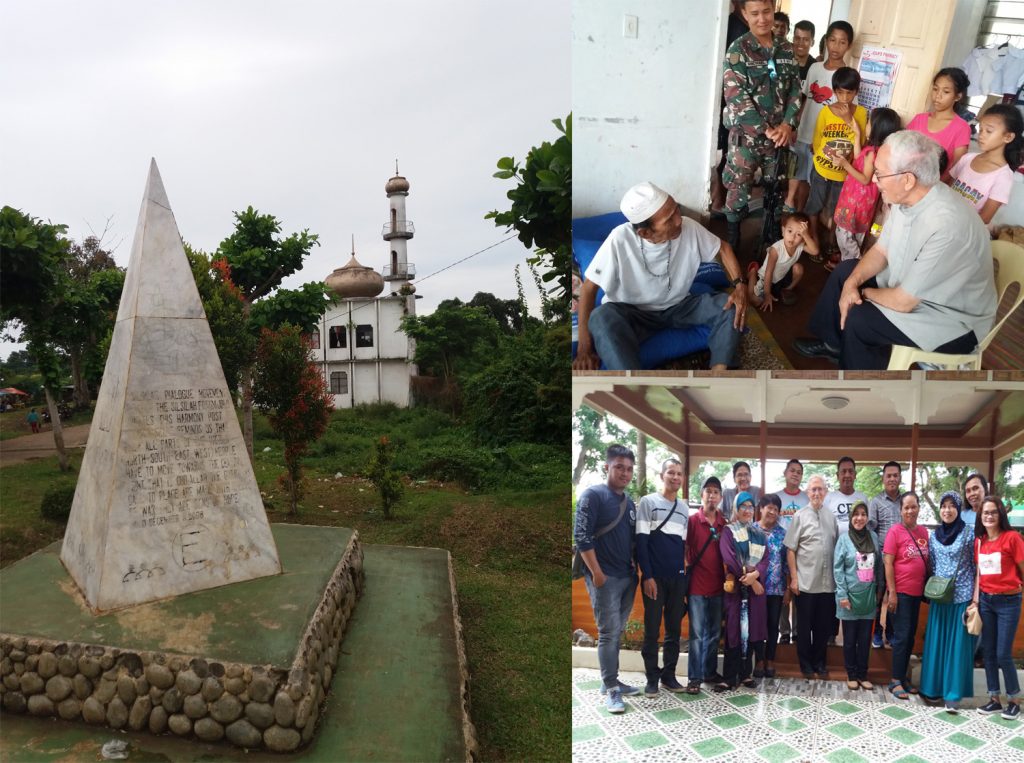 Jolo has a long history. It is in the Southern part of the Philippines along the Sulu Sea going toward Borneo and Indonesia. It was in that area that Islam arrived in 1380 and Jolo was the center of the first Sultanate organized in the peninsula before the arrival of the Spaniards in the sixteenth century. In more recent times, Jolo became the center of the movement of the Moro National Liberation Front (MNLF), a revolutionary movement that emerged in 1972. The sultanate of Jolo still now claims part of Borneo offered to Jolo then in the past. These important events in the history of Jolo brought us to reflect: What is happening to Jolo now?
Jolo has a long history. It is in the Southern part of the Philippines along the Sulu Sea going toward Borneo and Indonesia. It was in that area that Islam arrived in 1380 and Jolo was the center of the first Sultanate organized in the peninsula before the arrival of the Spaniards in the sixteenth century. In more recent times, Jolo became the center of the movement of the Moro National Liberation Front (MNLF), a revolutionary movement that emerged in 1972. The sultanate of Jolo still now claims part of Borneo offered to Jolo then in the past. These important events in the history of Jolo brought us to reflect: What is happening to Jolo now?
Many attribute this situation to the presence of the Abu Sayyaf and new groups similar to Abu Sayyaf, others to the strong polarization of power in the hands of a few, others also to a strong presence of radical groups. I believe all these elements are contributing to make Jolo today a difficult place for all, especially for the Christians who, before, reached 10% of the population maintaining good relations among Muslims and Christians. But now the Christians are only 1% over a population of more than two hundred thousand. The Catholic cathedral is always guarded by the military and the Christians now are the favorite targets of bad elements. For this reason the Christians are leaving Jolo. This situation makes good Muslims in Jolo ashamed because it was not this way before. Muslims, Christians and Chinese in Jolo used to respect each other. Now, even good Muslim families who wish to live peacefully are leaving Jolo or have their houses also in Zamboanga City or other parts of the country.
 I was there a few days ago to meet the alumni of Silsilah. During my visit, I went to the capitol where the Silsilah Forum built a Harmony Post ten years ago as a sign of hope and harmony in Jolo. I also went to pray in the cathedral where in the little garden inside the fence of the church, there is the tomb of Bishop Ben de Jesus, killed in front of the church in 1997. He was a friend and an alumnus of Silsilah. When he was elected bishop of Jolo, he came to see me and asked to attend the Silsilah courses to be ready to face the reality of Jolo. The memory of Bishop Ben is still alive in the hearts of many Christians and Muslims in Jolo; he was loved by the people. During this last visit to Jolo, I also visited the victims of the recent fire in one area. It was a big fire that affected more than three thousand families.
I was there a few days ago to meet the alumni of Silsilah. During my visit, I went to the capitol where the Silsilah Forum built a Harmony Post ten years ago as a sign of hope and harmony in Jolo. I also went to pray in the cathedral where in the little garden inside the fence of the church, there is the tomb of Bishop Ben de Jesus, killed in front of the church in 1997. He was a friend and an alumnus of Silsilah. When he was elected bishop of Jolo, he came to see me and asked to attend the Silsilah courses to be ready to face the reality of Jolo. The memory of Bishop Ben is still alive in the hearts of many Christians and Muslims in Jolo; he was loved by the people. During this last visit to Jolo, I also visited the victims of the recent fire in one area. It was a big fire that affected more than three thousand families.
I went to Jolo to share solidarity and to meet especially the leaders of the Silsilah Core group of Jolo. More than twenty arrived and it was a long sharing. I listened to painful stories, but also joyful ones and I realized that there is still hope and commitment in the midst of the reality of Jolo. One experience that touched me most was the sharing of a young Muslim teacher who said: “ I teach in a rural area near Jolo and often we hear bombing in the near area. The children are afraid, but also we teachers are afraid”. Another said: “For us bombing is becoming familiar in Jolo.”
After listening to these and other stories with many details I asked the group: “What do you do in this situation?” Many suggestions came up from their sharing. They are determined to be more active and united. They also suggested to reopen the Silsilah Center in Jolo, and also to have training on trauma healing, things that we have done in the past to help. They also suggested to restart the formation for Madaris gurus, the teachers of Islamic schools, and for the Catechists, for the Christian teaching and also to reactivate the group of the Inter faith Council of Leaders. These and other sharing made me realize that the spirit of dialogue is still alive there, like the fire under the ashes that needs to be reactivated and we decided to do all that is possible. In fact soon, we will re-open the Silsilah Center in the center of the city, a place offered by the bishop of Jolo. I saw the coordinators of the Silsilah Forum Jolo regaining courage.
We never stop to hope in Silsilah. We will reactivate the presence of Silsilah in Jolo in spite of the alarming news that make us realize that Silsilah is indeed called to move “with hope in the midst of divisions and conflicts.”
Fr. Sebastiano D’Ambra, PIME
Founder, Silsilah Dialogue Movement

